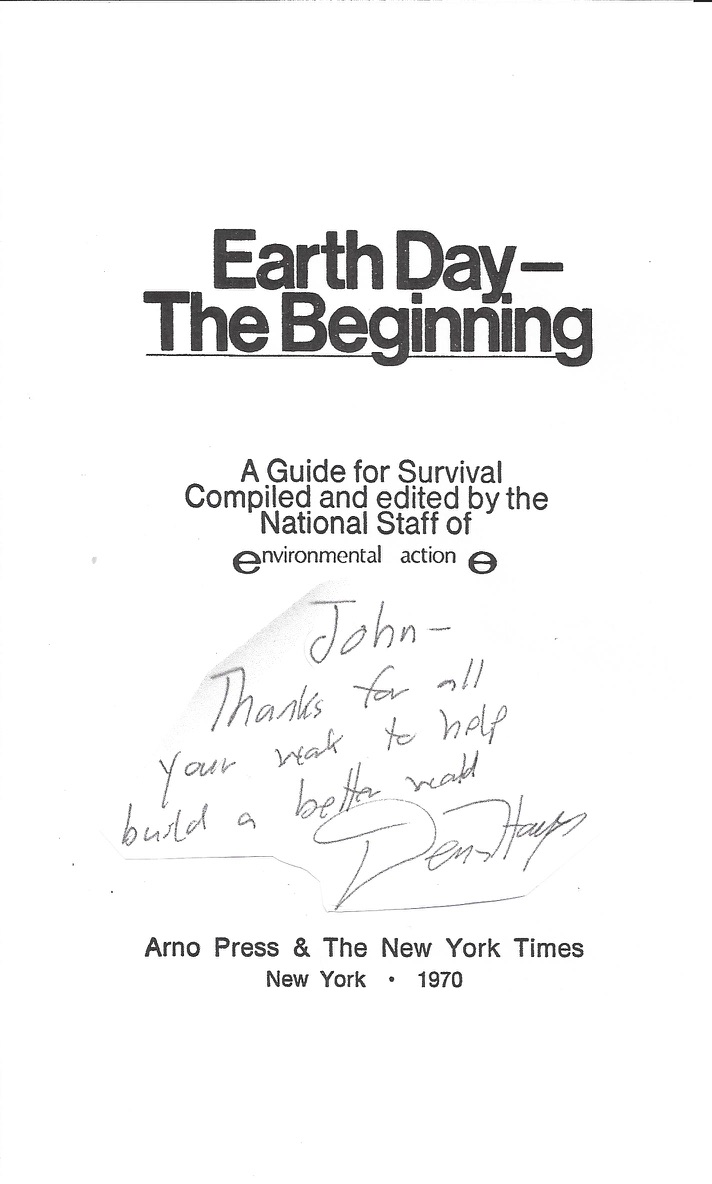Earth Day 2020: Ecology, Liberty and Prosperity, Part 1
By: John A. Baden, Ph.D.Posted on April 28, 2016 FREE Insights
Today many sincere conservationists and environmentalists recognize that responsible liberty and modest prosperity foster sustainable ecology. They understand that poverty is a terrible polluter and that liberty is a requisite for environmental entrepreneurship. Further, good intentions are most effective when incentives promote responsible behavior.
This is great progress. Thinking ahead, here is a theme for Earth Day's 50th anniversary: Harmonizing Ecology, Liberty and Prosperity. In 1970, impending doom was the core belief. Here are a few of the predictions, all by nationally recognized and successful individuals:
"Civilization will end within 15 or 30 years unless immediate action is taken against problems facing mankind." — Harvard biologist George Wald
"We are in an environmental crisis which threatens the survival of this nation, and of the world as a suitable place of human habitation." — Washington University biologist Barry Commoner
"Population will inevitably and completely outstrip whatever small increases in food supplies we make. The death rate will increase until at least 100-200 million people per year will be starving to death during the next ten years."— Stanford University biologist Paul Ehrlich
"It is already too late to avoid mass starvation." — Denis Hayes, Chief organizer for Earth Day
On Earth Day's birthday in 1970 I was a happy NSF post-doc in environmental policy at Indiana University. My assignment was to help create IU's School of Public and Environmental Affairs. What luck! My conservation cause became a career combining academic and agricultural work. The latter was restoring a ranch abused by renters. The former was developing the NRE (aka Free Market Environmentalism) with my academic colleagues at Montana State University.
In addition to unrealistic predictions, Earth Day carries additional baggage from its founding. The event was scheduled on the centennial of Vladimir Lenin's birthday, April 22, 1870. Was this an accident? A Google search suggests not. Here is a representative quote from the Wisconsin Law Journal. There are many from which to choose.
"April 22 is Earth Day. Very appropriately, and not by any means coincidentally, Earth Day is celebrated on the birthday of the socialist tyrant Vladimir Lenin....there is no relevant difference between the socialist and environmentalist agendas in this country." (david.ziemer@wislawjournal.com April 26, 2010)
Earth Day has acquired a patina of statist collectivism and its supporters a reputation for ignorance about and distain for markets, property rights, and entrepreneurship. According to its supporters, most Americans wanted and today want the "wrong things", for example high salaries and luxury consumer goods.
These criticisms of Americans flowed from its founding. The National Coordinator of Earth Day, Denis Hayes, wrote this for his Earth Day address at the Sylvan Theater in Washington, D. C.
"Our country is stealing from poorer nations and from generations yet unborn. We seem to have a reverse King Midas touch. Everything we touch turns to garbage.
You simply cannot live an ecologically sound life in America. That's simply not one of the options...."
This was not an outlyer, but rather typical of Earth Day statements and Hayes became an international leader in environmental policy. Today he runs the Bullitt Foundation, an environmental grant making foundation in Seattle. In his words the foundation "strives to build the intellectual foundations and political support needed for sweeping innovation." This foundation built the Bullitt Center, the world's greenest commercial building. It is designed to last 200 years, is fully leased, and generates a positive cash flow.
My next column will explore the success and operation of the Bullitt Foundation. I discuss how responsible liberty and modest prosperity foster sustainable ecology.


